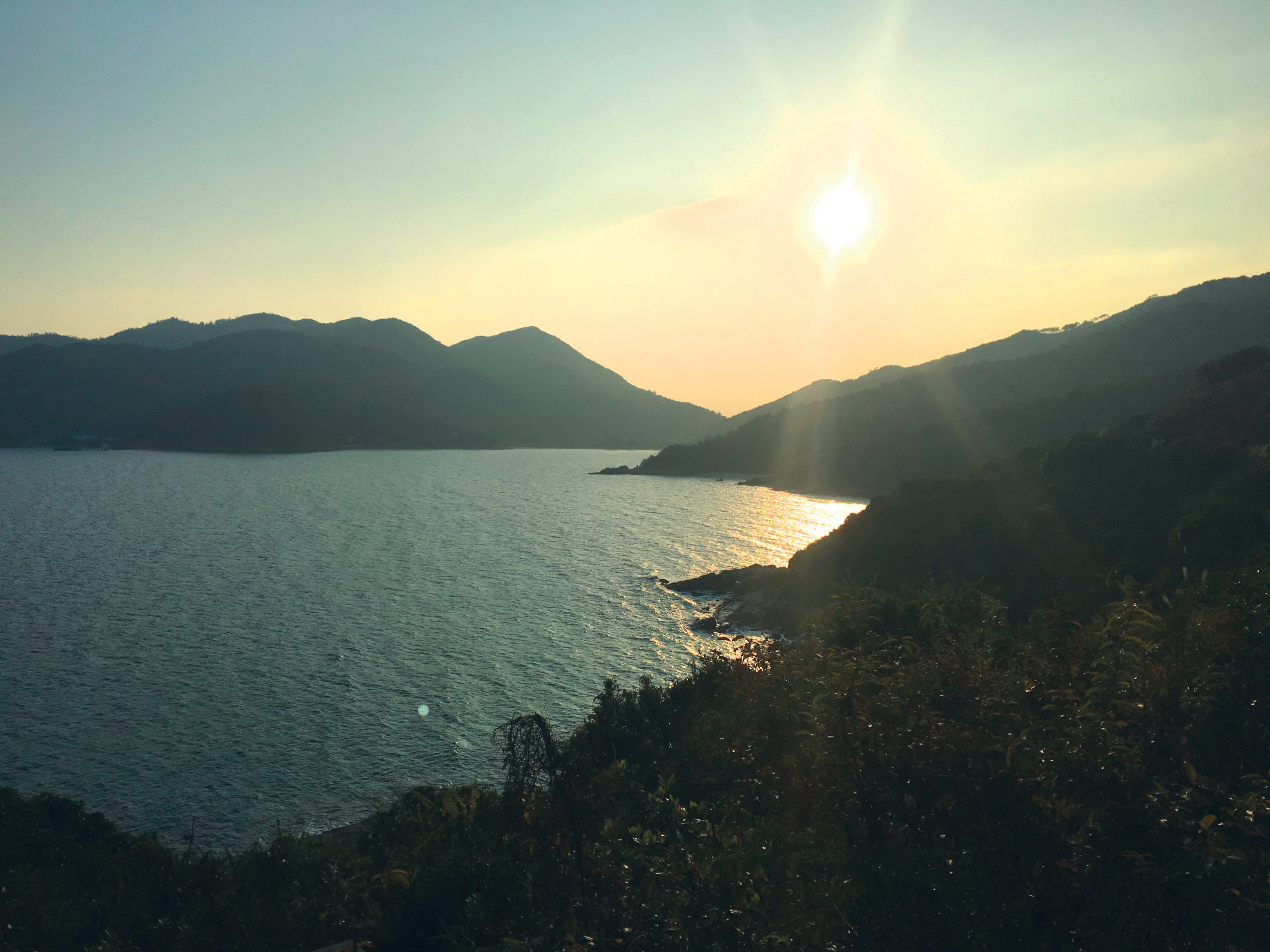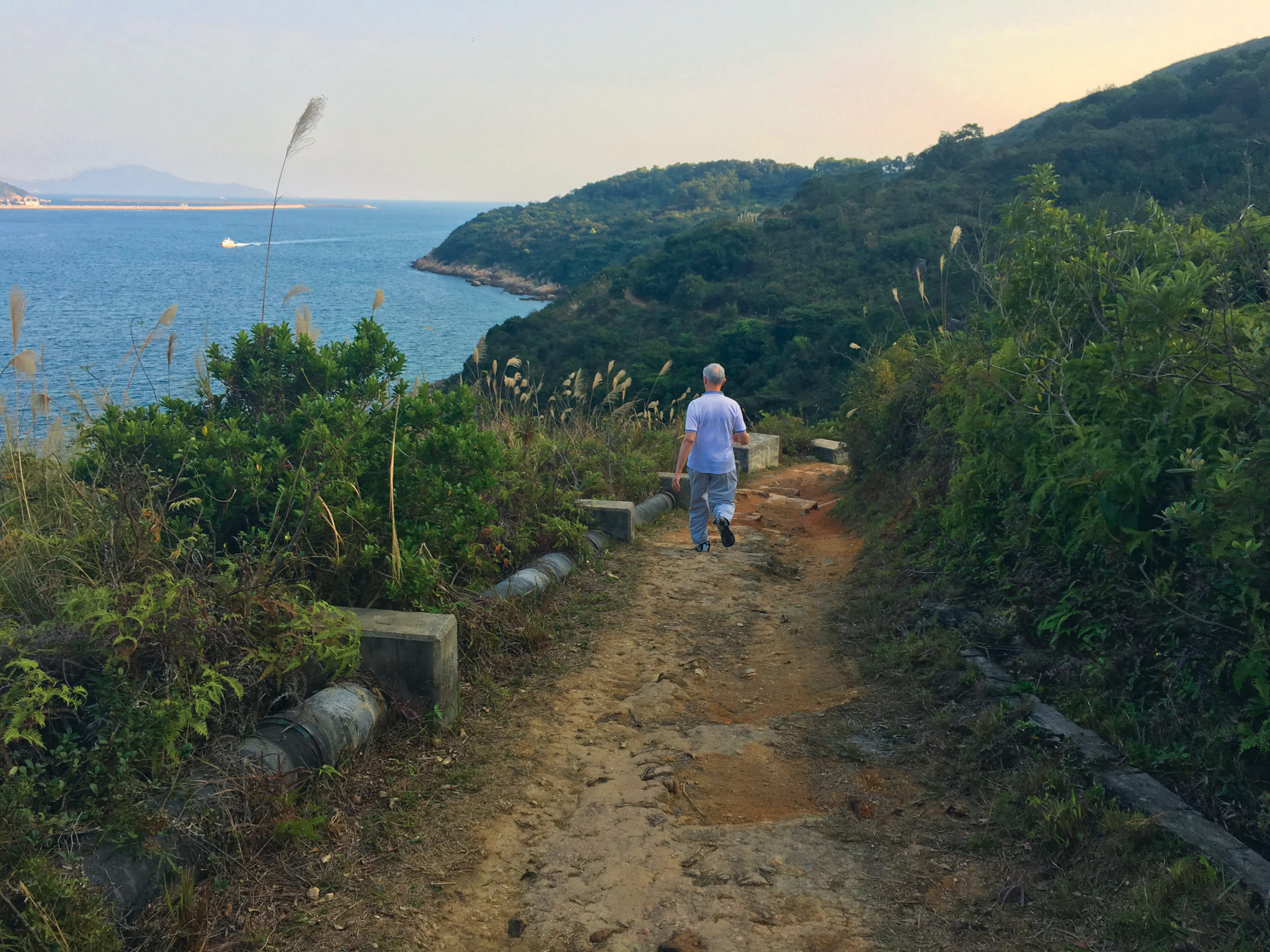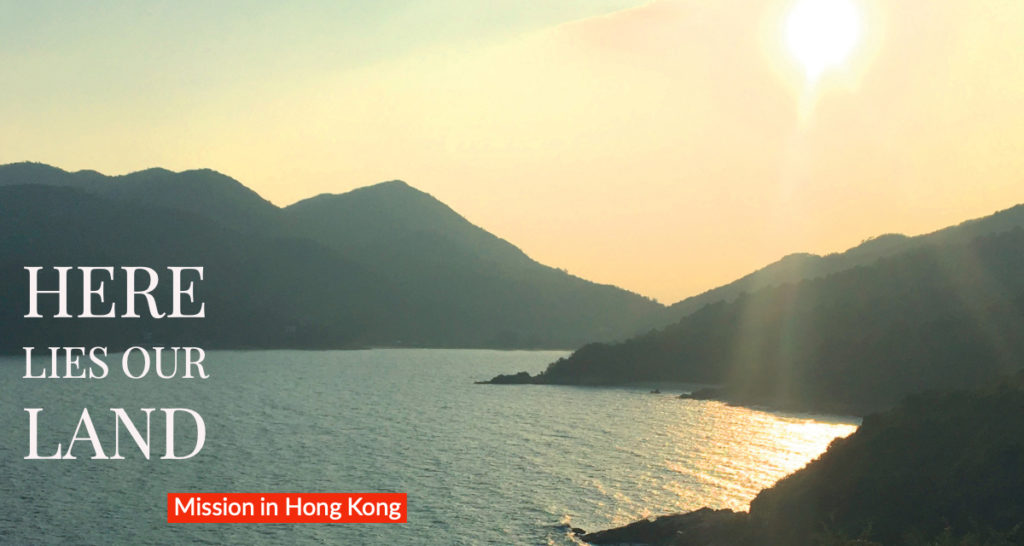Here Lies Our Land
Whenever visitors come to Hong Kong, they are amazed at the density of high-rise buildings that house the city’s population of 7.3 million residents. Some towers go as high as 60 floors. This skyscraper phenomenon is due to Hong Kong’s geographical profile. Much of the city’s 425 square miles is hilly terrain, which is not suitable for construction. 40% is zoned for country parks and nature reserves. Thus, less than 25% of the land is developed for commercial and residential use.
Given the urgent need for more housing, the Hong Kong government proposed last year to create a cluster of artificial islands in the eastern waters off scenic Lantau Island. Lantau is the largest of the outlying islands of Hong Kong in the South China Sea. The artificial islands would become an additional core business district (after Hong Kong Island and the Kowloon Peninsula) and house over one million people. The project is called “Lantau Tomorrow Vision.”

The plan has met with fierce opposition from the beginning. For one, this massive development would cost over $64 billion (USD), which is half of the city’s fiscal reserves. Then, the environmental impacts would be huge as such large-scale reclamation requires importing and pouring massive amounts of sand. It could destroy marine life and seriously worsen water and air quality as well. Critics also rightly question whether the project is actually a gift to powerful property developers who stand to make gigantic profits off Lantau Tomorrow Vision.
So, what are the alternatives? Hong Kong Christian Council takes the position that the issue is really one of “land justice” rather than simply “land supply.” From our perspective as Christians, our identity is indivisible from the land. We need to provide safe and just spaces for everyone, including nature. The land is a gift from God, and we should manage it responsibly and share the resources fairly. Up until the 1980s, most of the open space and rural areas in Hong Kong were accessible to the public. Then the government started reclamation projects for housing, while filling the areas with chain stores and shopping malls. In other words, economic development became more about making money than about building community. And this trend has continued to the present.
In a recent seminar on land supply, Dr. Bernard Wong of the China Graduate School of Theology (HK) said, “Yes, the society is suffering from problems of pricey, tiny, and cramped living spaces. But we should not simply accept that increasing land supply is the only solution. In the past we sacrificed the environment for land reclamation. Now we know that is not a sustainable solution. We should repent and stop these destructive practices.”
 Before disturbing and perhaps destroying the beauty and peace of Lantau Island, there are questions that need to be answered. What about revitalizing the damaged agricultural land that is currently being used for warehouses and parking lots? What about land left idle in the New Territories? What about challenging policies like the “Small House Policy” that allows indigenous male owners to keep their rights to build and possess a low-rise home in rural areas in perpetuity? In short, can’t we find cheaper and more sustainable solutions than “pouring money into the sea?”
Before disturbing and perhaps destroying the beauty and peace of Lantau Island, there are questions that need to be answered. What about revitalizing the damaged agricultural land that is currently being used for warehouses and parking lots? What about land left idle in the New Territories? What about challenging policies like the “Small House Policy” that allows indigenous male owners to keep their rights to build and possess a low-rise home in rural areas in perpetuity? In short, can’t we find cheaper and more sustainable solutions than “pouring money into the sea?”
In conclusion, what Hong Kong is facing is not land shortage, but the unjust distribution of the land. As people of faith, Christians believe that the best way to care for the land is to develop ecological democracy and to love our neighbors by sustaining our well-being together on the land we have. As covenant people of God, our economy is ultimately community-driven, not market-driven. Thus, we share and care for the resources from the Lord, who is the ultimate owner of everything we have, including the earth beneath our feet.
Judy Chan serves with the Hong Kong Christian Council (HKCC). Her appointment is made possible by your gifts to Disciples Mission Fund, Our Church’s Wider Mission, and your special gifts.

